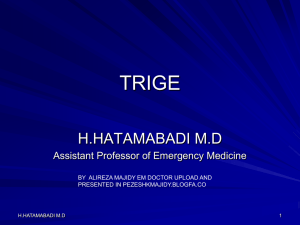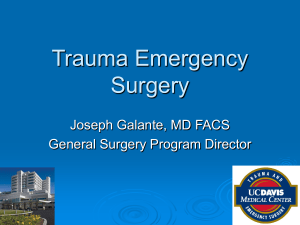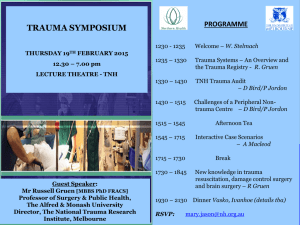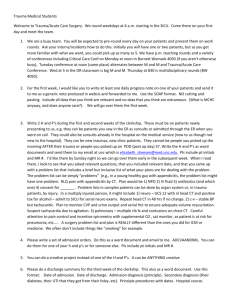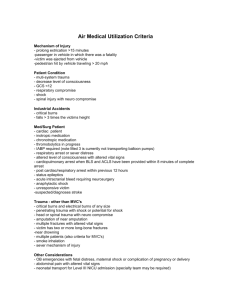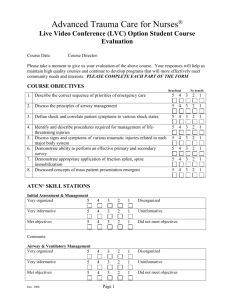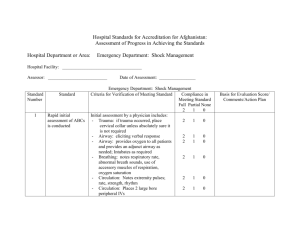Trauma Objectives Block Competency Assessment Method MS I
advertisement
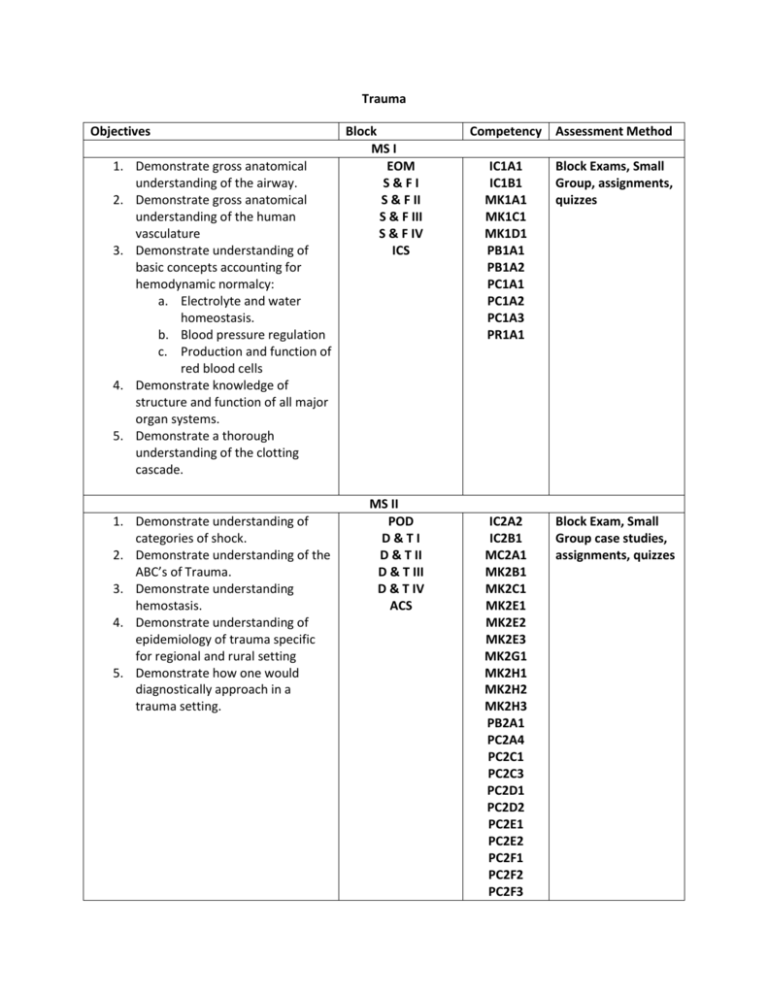
Trauma Objectives 1. Demonstrate gross anatomical understanding of the airway. 2. Demonstrate gross anatomical understanding of the human vasculature 3. Demonstrate understanding of basic concepts accounting for hemodynamic normalcy: a. Electrolyte and water homeostasis. b. Blood pressure regulation c. Production and function of red blood cells 4. Demonstrate knowledge of structure and function of all major organ systems. 5. Demonstrate a thorough understanding of the clotting cascade. 1. Demonstrate understanding of categories of shock. 2. Demonstrate understanding of the ABC’s of Trauma. 3. Demonstrate understanding hemostasis. 4. Demonstrate understanding of epidemiology of trauma specific for regional and rural setting 5. Demonstrate how one would diagnostically approach in a trauma setting. Block MS I EOM S&FI S & F II S & F III S & F IV ICS MS II POD D&TI D & T II D & T III D & T IV ACS Competency Assessment Method IC1A1 IC1B1 MK1A1 MK1C1 MK1D1 PB1A1 PB1A2 PC1A1 PC1A2 PC1A3 PR1A1 Block Exams, Small Group, assignments, quizzes IC2A2 IC2B1 MC2A1 MK2B1 MK2C1 MK2E1 MK2E2 MK2E3 MK2G1 MK2H1 MK2H2 MK2H3 PB2A1 PC2A4 PC2C1 PC2C3 PC2D1 PC2D2 PC2E1 PC2E2 PC2F1 PC2F2 PC2F3 Block Exam, Small Group case studies, assignments, quizzes PC2G1 PC2H1 PR2A1 IC2A2 IC2B1 MC2A1 MK2B1 MK2C1 MK2E1 MK2E2 MK2E3 MK2G1 MK2H1 MK2H2 MK2H3 PB2A1 PC2A4 PC2C1 PC2C3 PC2D1 PC2D2 PC2E1 PC2E2 PC2F1 PC2F2 PC2F3 PC2G1 PC2H1 PR2A1 MS IV (if participating in these rotations) Management: detailed physical Emergency IC4A1 exam appropriate workup, notify IM IC4A3 necessary specialists. FM MK4A1 Demonstrate proper technique in MK4B1 establishing an airway. MK4C1 Demonstrate an understanding of MK4D2 the advantages and disadvantages MK4D3 of different treatments for trauma MK4E1 and an understanding of basic MK4G1 trauma protocol. MK4H1 Demonstrate a cost-effective MK4H2 approach to the management of PB4A1 trauma scenarios. PC4A1 Communicate with patient or PC4A2 appropriate healthcare surrogate PC4B1 regarding the potential outcomes PC4E1 and options for management. PC4F1 1. Demonstrate an understanding of the principles of: a. Primary acute trauma management: ABC’s, etc. b. Vascular access. c. The importance of basic blood tests d. Secondary acute trauma 2. Demonstrate understanding of how one would conservatively manage shock. 3. Demonstrate knowledge of indications for non-conservative therapy for shock. 4. Demonstrate knowledge of the common etiologies of trauma in region. 5. Demonstrate an understanding of pharmacologic interventions in the face of trauma, including which medications may be indicated and which ones are clearly contraindicated. 1. 2. 3. 4. 5. MS III Surg Peds FM IM Subject Mini-boards, Faculty observation, Clerkship exams, Patient logger Sub-internship and clerkship exams, faculty observation PC4F2 PC4G1 PC4G2 PC4H1 PR4A1 PR4I1




